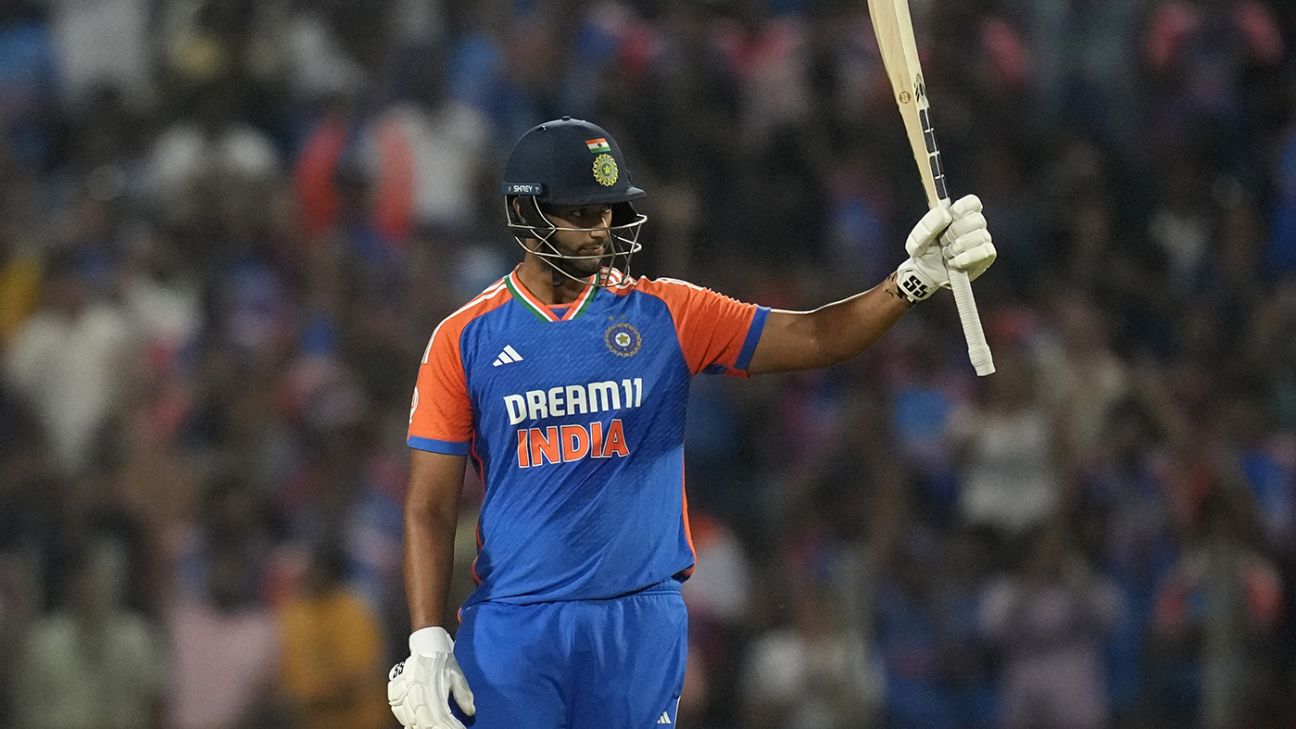 |
|
The India versus England T20I series continues in Mumbai, with the fifth match setting the stage for a thrilling encounter. England, winning the toss, opted to bowl first, a decision likely influenced by the conditions at the Wankhede Stadium and their assessment of the Indian batting lineup. This tactical choice immediately sets the tone for the match, placing the onus on the Indian batsmen to establish a formidable total under pressure. The strategic approach by the English captain reflects a careful understanding of the game's dynamics and the strengths and weaknesses of both teams. This early decision will undoubtedly have significant implications for the match's outcome, shaping the batting and bowling strategies for both sides throughout the innings.
The fitness of Shivam Dube, an integral part of the Indian all-rounder contingent, was a significant talking point leading up to the match. After suffering a blow to the helmet in the fourth T20I, concerns arose about his availability. However, his confirmation that he is 'good to go' provides a crucial boost to the Indian team. Dube's all-round abilities—a powerful batting style coupled with effective bowling—make him a valuable asset, adding depth and versatility to the Indian lineup. His presence strengthens the team's chances significantly, providing both scoring power in the middle order and additional bowling options.
The inclusion of Mohammed Shami in the Indian team represents another key tactical change. Replacing Arshdeep Singh, Shami brings a different dimension to the Indian bowling attack. Known for his exceptional pace and ability to generate swing and seam movement, Shami offers a potentially potent threat to the English batting order. His expertise in taking crucial wickets at pivotal moments makes him a valuable addition. The decision to swap Arshdeep Singh for Shami suggests a calculated approach by the Indian team management, reflecting a desire to adapt to the specific match conditions and exploit any perceived weaknesses in the English batting approach. This substitution hints at a deeper strategic planning in play by the Indian team, emphasizing their determination to secure a win.
The atmosphere in Mumbai is expected to be electric, given the high stakes of the match and the intense rivalry between these two cricketing giants. The packed stadium will undoubtedly add an extra layer of pressure to the players, and the intensity of the contest is certain to be palpable. The atmosphere in the stadium, coupled with the significance of the match, will undoubtedly play a role in shaping the players' performances. The psychological impact of such a charged environment can be considerable, influencing both individual and team dynamics.
The toss and the subsequent team selections set the stage for a potentially captivating contest. England's decision to bowl first indicates their confidence in their bowling attack to restrict the Indian run-rate, while India's response – including the return of Dube and Shami – showcases their determination to adapt and fight back. The match promises to be a battle of strategy, skill, and nerves, with the eventual victor emerging as a testament to their superior tactical acumen and exceptional execution under pressure. The close nature of the previous matches already indicates that a highly competitive encounter is expected, with the potential for a dramatic finish. The unpredictability inherent in the sport only further enhances the excitement surrounding this crucial encounter in the series.
Source: England bowl first at Mumbai as Dube is passed fit after concussion
